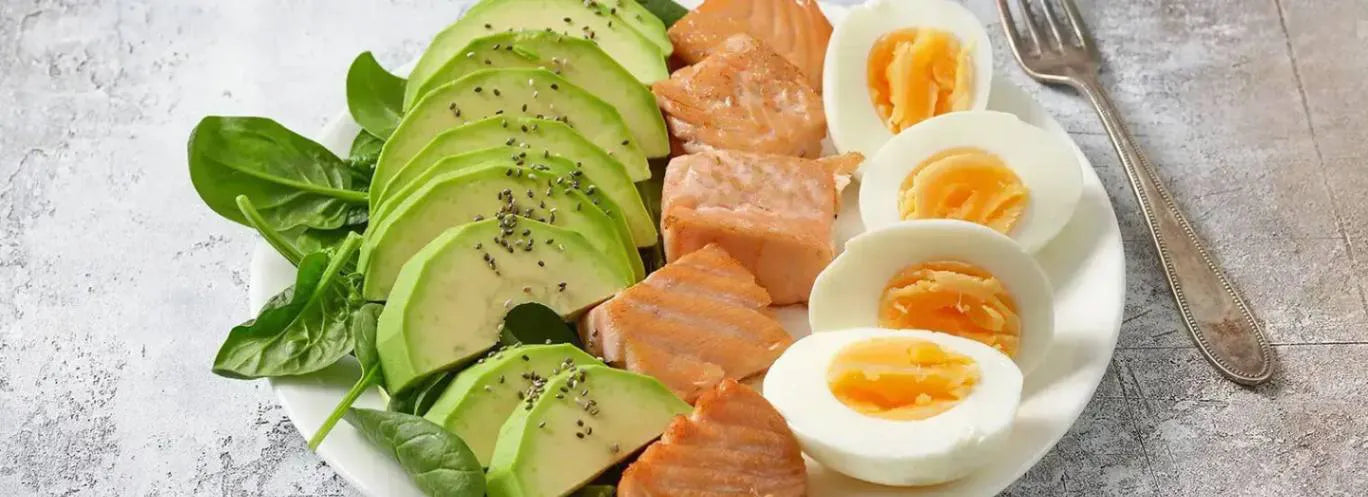
by Mia Rigden<
Board-certified nutritionist, classically trained chef
As a nutritionist, I’ve thought long and hard about the true purpose of my services. What are my clients getting from working with me? Sure healthy eating offers many perks — increased energy, better digestion, more restful sleep — but what’s the true benefit? After much thought, the answer was clear: happiness. I’m helping my clients eat for physical and mental health.
We talk so much about how nutrition affects the body — some foods support the immune system, others are great for the thyroid, and what’s that link again between chocolate and acne? — and that’s not incorrect, just incomplete. Nutrition is about feeling good. We want to wake up every morning with energy, ready to tackle the day. We want to feel comfortable and confident in our clothes, to live without digestive discomfort, and avoid chronic inflammatory or metabolic diseases. It’s hard work, but it pays off by delivering a better quality of life, a happier life.
Every system of the body has a mental-physical connection. To truly understand your physical health you have to be paying attention to your mental health and vice versa. With this in mind, chew on these five quick tips to eat for mental health.
Eat probiotic and prebiotic-rich foods.
They say the gut is the “second brain,” and it’s true the gut and the brain are intrinsically connected. Maintaining a healthy gut microbiome can improve symptoms and reduce the risk of depression, anxiety, and other mood disorders. Also of note: around 95% of our “happy hormone” serotonin is made in the gut. Optimize your gut health by eating both probiotic and prebiotic-rich foods.
Probiotic-rich foods — which include fermented foods like sauerkraut, kimchi, yogurt, miso, and tempeh — help populate healthy gut bacteria. Prebiotics are food for that good bacteria, and include fiber-rich plants like bananas, artichokes, leeks, garlic, asparagus, and onions as well as legumes like chickpeas, black beans, and lentils. When I’m eating for mental health, I’m focusing on consuming a variety of plant foods to meet my prebiotic needs.
Consume adequate protein.
Eating sufficient protein supports mental health in a few important ways. Protein helps to maintain balanced blood sugar levels, which can reduce fluctuations in stress hormone cortisol while also stabilizing our mood and energy levels. Animal protein is also a great source of B12, which is critical for brain health. Additionally, studies have shown that protein intake can influence our levels of dopamine and norepinephrine, two mood-boosting chemicals found in the brain.
Incorporate healthy fats.
Fats are fuel for the brain! They affect the brain’s energy supply, cell membrane structure, absorption of essential nutrients like vitamin D, and so much more. Consuming polyunsaturated fats from foods like avocado, olive oil, nuts, seeds, eggs, and fatty fish like salmon are associated with a decrease in symptoms of depression and anxiety while elevating mood.
Omega 3 fatty acids in particular, found in fatty fish (remember the acronym SMASH: salmon, mackerel, anchovies, herring, and sardines), walnuts, chia seeds, eggs, avocado, and more, are highly anti-inflammatory and have been shown to both improve and prevent the risk of mental health disorders from postpartum depression to bipolar disorder.
Limit processed foods, sugar, and alcohol.
Seed oils in processed foods, added sugars, and alcohol are all known gut disruptors and easy to consume in excessive amounts that can be harmful to mental and physical health. Study after study has shown an association between consumption of processed foods, sugar, and alcohol and increased incidence of depression, anxiety, and cognitive decline. Opt for whole foods, try to cook more at home, and reduce alcohol intake to a few drinks a week.
Supplement appropriately.
While we should always aim to get as many nutrients from food as possible, supplementation is a great way to support eating for mental health.
I think of supplements like a fail-safe. I take them not to replace any food, as there is no replacement for the joy of enjoying a meal with friends or family, an underrated aspect of eating for mental health. Savoring the taste of something I worked to make is so rewarding and helps me eat mindfully. I take supplements so I don’t worry. I have enough on my plate (pun intended) as a mom of two running a business.
Do I try to follow these tips for eating for mental health? Yes. Do I fall short? Sometimes. That’s why I always have my Lypo-Spheric® Magnesium, Acetyl L-Carnitine, and B Complex Plus on hand; they offer elite absorption of the nutrients my brain needs.
In addition to nutrition, lifestyle is critical for mental health. If you’re looking for more ways to improve your mood, focus on moving your body, prioritizing sleep, managing stress levels, and spending time outdoors and in nature when possible. These are all feel-good activities and routines that offer tremendous benefits to your physical and mental health.
Mia Rigden is a Los Angeles-based board certified nutritionist, trained chef, and the author of The Well Journal (2020) and Foodwise (2023), a comprehensive, encouraging guide to healthy eating with 100 original, nutritionally-balanced and flavor-enriching recipes. Learn more about working with Mia on her website, check out an online course, and follow on Instagram @mia_rigden for science-backed, practical nutrition advice.

